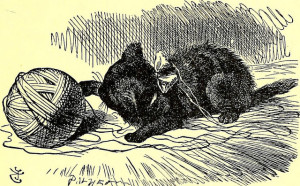
40th chat, August 25 2015: tenure track and social justice work
Moderated by @lalaleefull and @AprilHathcock
Storify (pdf, html) by @jvinopal
Suggested readings:
- Koritha Mitchell. “I’m a professor. My colleagues who let their students dictate what they teach are cowards.” Vox. June 10, 2015.
- Emily Drabinski. Keeping our own time. Academic Library Instruction Burnout. June 16, 2015.
Topic: “The struggle to transform our institutional practices fundamentally also involves the grounding of the analysis of exploitation and oppression in accurate history and theory, seeing ourselves as activists in the academy, drawing links between movements for social justice and our pedagogical and scholarly endeavors and expecting and demanding action from ourselves, our colleagues, and our students at numerous levels.”
~Chandra Mohanty, Feminism without borders: Decolonizing theory, practicing solidarity (2003)
This chat is not meant to exclude public librarians, special librarians, school librarians, or academic librarians who are adjuncting or in non-tenured professional lines. Job security and academic freedom are the overarching concerns that we can address as librarians writ large. Though some of the discussion questions may “read” academic, all viewpoints are welcome. Essentially, how can we balance agitating for change and working for social justice within the parameters set for our specific positions?
Discussion questions:
TT = tenure track NTT= not tenure track
Lead in: Tenure/guaranteed contract/security comes with caveats and expectations.
- Q1. Is tenure/guaranteed contract necessary for effective critical/social justice work? Why or why not?
- Q1.2. Does TT lend itself to creating certain types of change and NTT to others?
- Q2. If you actively sought/seek a TT job, what attracted you to the position? If you avoid applying for these jobs, why?
- Q3. How does being considered for tenure/guaranteed contract help/hinder you in terms of critical and social justice work in your library or institution?
- Q3.1. How does it impact your scholarly or other output? Do you feel pressure to publish in certain venues/on certain themes as opposed to others?